 Darren in the Van
Darren in the VanDarren and I made friends right away. On the first day I picked him up in the school bus I drove, he called out to me from the back.
“Hey bus driver!”
“Yeah Darren?”
“Yes means no and no means yes!”
“Is that what they taught you in kindergarten today?”
“No, I figured that out myself.”
Sometimes we’d talk, or sometimes we’d just sit silently together in our pointless trajectory across the suburbs.
It wasn’t a real school bus, it was a van. Darren was five, and for some reason his kindergarten program ended more than an hour earlier than the ones at other schools. Once he’d climbed aboard, we headed off across the San Fernando Valley to pick up Josh at 12:30. We’d sit in the van for about twenty minutes to wait there. Then we went back to the private school where I worked. This struck me as kind of insane for poor Darren – all that time in the van with me driving back and forth across the Valley for no reason. I talked to the director of the school about it.
“Cindy, can’t I just take Darren back here at 11 instead of keeping him in the van with me for almost two hours?”
“No. His parents won’t pay the extra for him to have the last part of his kindergarten day here, so this is how I’ve solved that problem.”
It didn’t surprise me. Her husband was a lawyer and they’d set up this school as kind of a large-scale baby-sitting program for their other lawyer friends and some people like Darren’s parents who had the misfortune of happening upon it.
So Darren and I made the best of it. I taught him songs I remembered from elementary school, like “The Cherry Tree.”
White in the sunshine, green in the rain
Leaning out from a hill at the top of the plain
The cherry tree watches the people who go
Down the hill fast, up the hill slow
He’d sing with me. He wasn’t all that into it, though.
I was saving for a trip across Europe and I knew a little French, so I figured I’d practice with him – and that, he loved. “Un! Deux! Trois!” he’d shout, repeating after me. I taught him some colors, too. “Rouge! Noir!” When Josh got in the van, they’d show each other their drawings and talk about their families and their pets and what they saw on TV and what they did over the weekend. Sometimes we even practiced a little French together. The three of us were having a pretty good time.
One day, though, we drove to Josh’s school and waited as usual, but when kindergarten got out – no Josh. I walked into the office to ask about him and the woman there told me she was sorry, she was supposed to have gone out to the van to tell me that he would be off school for two weeks. His parents had taken him on a trip.
Okay, I said to myself. Cindy doesn’t know or she would’ve told me, probably. This means I’ve got two hours to kill every day. If I tell Cindy, she’ll make an issue about Darren’s parents not paying and she’ll find some other scheme to deal with him, maybe even crazier than having him spend two hours in the van. And she’d find something for me to do, too, like wash windows or help serve lunch. I decided hanging out with Darren would be more fun.
So the next day, when I picked him up at his school I said:
“We don’t have to pick up Josh. Whatcha wanna do?”
“I dunno. Shouldn’t we go to school?”
“Well, we could if you want to. But I asked them and they said you weren’t in the program until the afternoon. Tell you what, I’m going to the bank and then I’m going to go say hi to a friend. Wanna come?”
“Sure.”
So I took him to the bank. I didn’t think the tellers would notice I had a five-year-old with me, but they knew I was another nineteen-year-old Valley stoner like them, so they did.
“Is that your little brother?” one of them asked.
I explained I was a school bus driver and I had a little extra time so I was running some errands. Then I went up to Mike’s house. He didn’t think there was anything unusual about me dropping by before noon with a five-year-old. He knew I was driving the van and I’d told him about some of the kids. I introduced them once we got inside.
Mike had just woken up and was about to have cereal. He poured a bowl for Darren, too. Then he found a channel still showing cartoons that late in the morning. They watched cartoons and had their Rice Crispies and milk together. I browsed through the copy of Newsweek on Mike’s family room table.
“Do you guys like alligators?” Darren asked us.
“They’re okay,” Mike said.
“I guess I like ’em,” I said to Darren. “Do you?”
“I love alligators.”
“Why?”
“Because they’re the closest things we’ve got to dinosaurs!”
We killed half an hour or so that way – we talked about helicopters, too, and we all agreed they were pretty great, along with trumpets, pianos and guitars – then I took Darren back for day care with kids his own age and headed out for my afternoon pickups.
The next day, though, I really didn’t know what Darren and I could do to waste time, so we took a drive. We went up to the top of a hill that looked out on a huge expanse of chaparral, an undulating plain covered with brush that would turn into tumbleweeds when summer came. They were going to build a freeway there. It had been a foggy morning, and there was still some mist clinging to the barren landscape.
Darren and I climbed from the van to stand on the ridge and take in the view. We were out of our usual element of storefront-lined avenues and suburban tract homes. It looked otherwordly up there.
“You know where we are?” I asked him.
“No.”
“This is where people go when they die.”
He looked up at me with wide eyes and an open mouth. A cool breeze blew over us, tousling his hair slightly.
“Is my dog here?”
I felt bad immediately.
“No – ” I was about to tell him I was just messing with him. I didn’t want him climbing out of his window at three in the morning and trying to look for his dog. But before I could, he asked:
“And is my grandma here?”
He was getting intense. I knew I had to calm him down.
“Darren, Darren, I was just teasing. Man. Don’t take me so seriously. It’s just a field. I was just kidding. They’re gonna build a freeway here. That’s why there’s nothing up here. It’s just a field.”
He was still looking at me.
We got back in the van. He was silent.
“You know I was just kidding, right?” I asked him as we drove away.
“No.”
He didn’t believe me. He thought I’d showed him where people – and dogs – go when they die. He figured I was trying to cover it up.
I pulled over and stopped the van and turned around to look at him.
“Darren, you gotta understand. Nobody knows what happens when you die. Nobody knows. Some people think there’s a heaven. Some people don’t. But nobody knows. It’s a mystery. But one thing you gotta know, guy: That field I just showed you has nothing to do with it. I was just kidding.”
I had forgotten what it was like to be five. And I’ll never know what it was like to be Darren, Mr. Yes-Means-No.
“You believe me, now, right?” I asked him when we got back to the school. He just stared at me. I could tell what he was thinking: “You let me in on a secret and now you’re trying to tell me it’s not the truth.”
When we got back to school, Cindy saw us and asked me where Josh was. I gave Darren a signal to go ahead to his classroom and explained that the woman at Josh’s school told me he went on a trip with his parents.
“Yeah, I just got the note on that. So where were you?”
I had underestimated her attention to detail. One kid, two kids, one hour, two hours – I really didn’t think she’d notice.
“I took Darren with me to gas up the van.”
“All this time?”
“I talked to the guy at the gas station for a while. I had him check the van over. Then we went for a drive. You told me you didn’t want Darren here too early, so I was taking as long as possible.”
I could see the gears working in her lawyer-wife head: “Should I challenge him? What’s the upside? What’s the downside?” She decided to walk away.
A couple of days later, though, she called me into her office.
“I’ve had some complaints.”
“About …?”
“Well, some of the parents said you take their kids to the doughnut shop.”
“Not me. That’s Joan. She used to work at Winchell’s. They give her free doughnuts. It’s a treat for the kids. She told me she does it sometimes. I wouldn’t do it. They wouldn’t give me free doughnuts.”
“And Darren said you took him to a restaurant.”
“Nope. Never happened.” Where’d he get that?
“And to the bank.”
“I stopped at the bank for a minute that day I didn’t have to pick up Josh. I was killing some time. Remember, you told me you didn’t want Darren here too early. Speaking of which, what are you doing with Darren now that I bring him at 11?” She didn’t answer, though.
“He said you brought him to your friend’s house.”
“No. I would never do that.”
I was waiting for the next part. What was I going to say? I was waiting in dread. But it didn’t come.
“Okay,” Cindy said. That was the end of our meeting.
I wonder why Darren didn’t tell her I took him to the place where people go when they die. Maybe he figured she’d deny it, too, like I did. Just another liar in a world full of them, huh Mr. Yes-Means-No? They built that freeway up there. You can’t see that field anymore, so dreamlike in the morning mist. It’s gone. I know. I’ve looked for it.
 Euro-Looting
Euro-LootingYouu showed up in Paris with your friend Greg. You were going to ride your bikes to Barcelona. You were twenty years old and you grew up in the suburbs of Los Angeles and you’d never been to Europe.
You took the train from London to Dover and the ferry to Calais and then got on another train there and arrived at the Gare du Nord first thing one cold morning at the beginning of March. You made your way across Paris and found your friend Julie’s apartment on the rue St. Jacques, up six flights of narrow, twisting stairs.
Julie was doing her junior year abroad. She’d been studying music, but they’d just fired her teachers in a pay dispute. So she was taking French classes and doing some drawing, but mostly just sitting in cafes and hanging out.
Her roommate, Joan, had lived down the street from you through junior high and high school. She had left Paris a few weeks before.
Julie and Joan had gone out one night and met two Nigerian guys at a café. They got to talking about life in Africa, in France, in the United States. They must’ve seemed like nice guys. So as the night turned to morning and the café was closing, they all went to the Nigerians’ apartment.
Once there, things got tense. The Nigerians wouldn’t let them leave. They thought there’d be sex. But that was not what Julie and Joan thought. Joan got nervous and aggressive with them. One of the Nigerians picked her up and threw her over his shoulder, as if she were a sack of wheat he had bought at the market. He was going to carry her to bed.
Probably the only reason they didn’t get raped is because Julie kept her cool. “Why are you doing this?” she asked them. “Pourquoi vous faites ca?” Good question. Maybe it was a reality check for the guys and it reminded them they were nice girls and didn’t deserve to be hurt. The Nigerians let them go home.
But Joan didn’t feel safe there anymore, so she packed her bags and moved back to L.A. She sent Julie a tape.
Julie played the tape for you the day you got to Paris. Joan talked about her nightmares. She would dream she was getting raped by a Nigerian. You put your hands over your face. “Oh poor Joan!” you said.
Julie’s new roommate was a gorgeous redhead named Lolly. You fell in love with her as soon as you saw her. She took you to bed. Then you and Greg went off on your bike ride to Barcelona. It was spring break so Lolly and Julie hitchhiked to Nice.
Lolly met a group of people on the beach, some young travelers from France and other countries, and some street people. They were squatting in an abandoned farmhouse on the outskirts of town, past the Chagall Museum. They’d been pooling their money for groceries but pretty soon they were broke. Lolly left Julie behind at their hotel and moved in with them.
Lolly became a valuable member of the gang because of her striking curly henna-tinged hair and remarkable curves. She would spend the day on the beach with the travelers and the bums. Men walking on the path above would lean over the wall and shout down to tell Lolly to take off her top. When they threw enough coins, she did.
A British busker named James was a member of the gang, and Lolly was sleeping with him. One night he got food poisoning and crawled out of their sleeping bag and walked to the hospital. That was the last she saw of him.
Marco was the leader of the squatters. He asked some of the other Brits and Belgians and French guys if they wanted a job. They said yes. He told them to follow him.
It was 2 a.m. They walked up the road, heading out of the city. They arrived at a house. It was uninhabited for the moment. They broke in. Marco found some pillowcases, and they filled the pillowcases with plumbing fixtures, doorknobs, anything that wasn’t nailed down and some other stuff that was. They carried the jangling pillowcases back to the squat. Marco said he could sell the stuff in the morning.
But it wasn’t morning yet and he was hungry. Looting a house must work up an appetite. There were pigeons roosting in the rafters of the squat. Marco devised a slingshot and killed one of them. Lolly grilled the pigeon and Marco whipped up a sauce from a stick of butter and some flour and thyme and they ate it.
“How was it?” you asked her when you got back to Paris and she told you the story.
“The pigeon was awful,” she said. “But the sauce was really good.”
You and Greg had done your ride to Barcelona and spent a week with a friend, Elisabeth, who was teaching English there. She was sharing her apartment with an American and a couple of Brits. It was spring break, and there was also a guy and a couple of girls from Belgium, too. The night you arrived the whole group went out to dinner. A young Irishwoman named Kaitlyn and her Spanish boyfriend came along. It was a dark restaurant, which was good, because that way when the rabbit came you couldn’t see that it was served with its brains. Greg told you about that later.
Kaitlyn’s hands were slightly deformed, but otherwise she was pretty. She had thinnish light hair and a nice face. The American and the Brits were teasing her with Irish jokes. A Brit said: “The Irish wolfhound chews on a bone all day long and when he stands up his leg falls off.” The conversation turned to the Irishwoman’s boyfriend. He’d recently finished his military service, where he’d been trained as the Spanish equivalent of a U.S. Special Forces officer. But he had long hair and he looked more like an artist than a soldier.
You were standing outside the restaurant after the meal and it started to drizzle. You were telling Elisabeth about the weird wet winter of heavy rains she’d just missed in Los Angeles. Suddenly, you were in the air! The Spanish soldier had picked you up by your thighs and was holding you in some sort of Spanish Special Forces carrying position, straight up, as if you were a tree branch or a flagpole that he’d locked his arms around, and he was running down the street, holding you aloft. He plopped you down on the hood of a car and he said:
“Steve, never stay with one woman for too long.”
Then he ran off down the street and disappeared into the Barcelona night.
Two days later, Elisabeth told you:
“Kaitlyn hasn’t seen Fernando since that night at the restaurant. She wants to know if he said anything to you before he ran away.”
“No she doesn’t. She doesn’t want to know what he said. Tell her he didn’t say anything.”
Greg stayed in Spain and you went back to Paris because you decided you were in love with Lolly. But if she’d ever had any real feelings for you, they were gone by the time you got back. You spent a week together, then she ditched you one night to go out with a French guy named Dominique. She came back to the apartment the next night. You said you wanted to take her out for a last drink. So you walked down the street together and went into the Closerie des Lilas. You went inside and she stepped on a Borzoi’s paw and the dog yelped just under the seat at the bar marked with the brass plaque saying that Hemingway drank there. You got a table outside and ordered a beer for yourself and a diabolo menthe for Lolly. You drank together without saying much except goodbye.
You left for Brussels and stayed there with one of Lolly’s friends, Suzanne. You took her out to a bar on the Grand Place and got her drunk. She threw up out the cab window all the way home. You left for Amsterdam the next morning. You spent two days in Amsterdam, walking around the canals and daydreaming. You didn’t go to the Van Gogh Museum. You knew you’d regret that for the rest of your life. And you do.
You took a ferry back to England and checked into the White House Hotel on Earl’s Court Square. The guy working there was a long-haired blond from Santa Barbara, his name was Rick and you knew some of the same people and places. He had grown up in L.A. You were about to book a flight home. But he said he was quitting and was looking for someone to replace him. You figured it might be fun to stay in London for a while so you said you’d do it.
Rick went up to Scotland to visit his friend Perry there. Perry was in prison. He was from Los Angeles, too. When Rick came back to London he told you the story:
Perry had been hitchhiking around the U.K. He met a girl in Edinburgh. She introduced him to her friends. They asked him if he’d come along with them on a job. He said yes. They drove out to the country in the middle of the night and broke into a mansion. He was the lookout. They came back out carrying candelabras, silverware, paintings, anything and probably everything else of value.
A couple of nights later the Edinburgh crew took Perry out on another job. They drove him up to the gate of another country estate, gave him a crowbar, told him to break in and come out with everything he could carry. So he did. But they weren’t waiting there. The police were. The gang had tipped them off and pinned the previous looting on him, too. That was to keep the cops off their trail. Perry told the cops everything, but the gang had skipped town by then. He got a three-year prison sentence.
A guard brought him out to the cafeteria to meet Rick.
Rick told him the prison didn’t look very secure. It was rather isolated, but still ….
 Here’s the set-up for Steve Silkin’s The Telescope Builder, just 99 Cents on Kindle:
Here’s the set-up for Steve Silkin’s The Telescope Builder, just 99 Cents on Kindle:
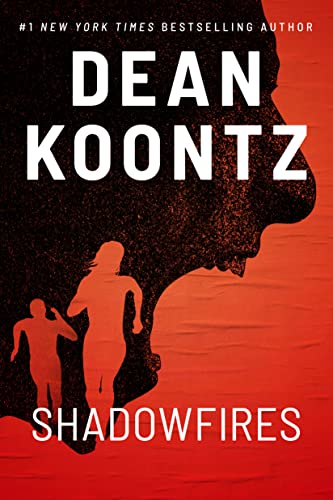




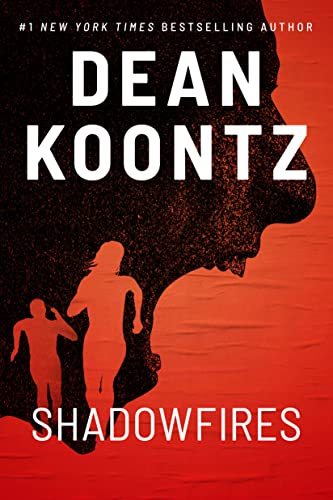
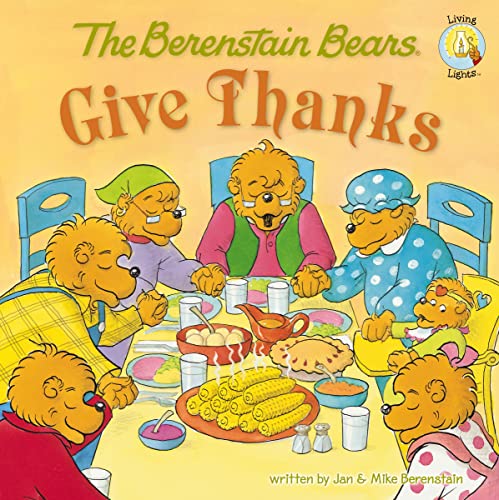
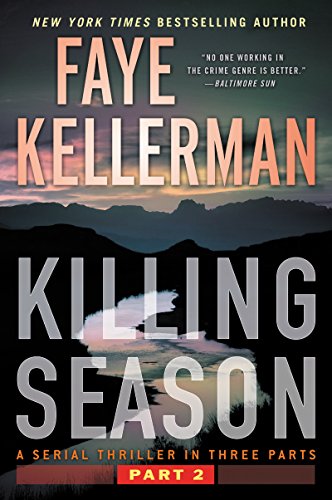
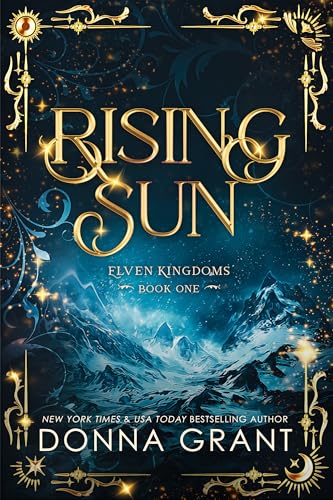


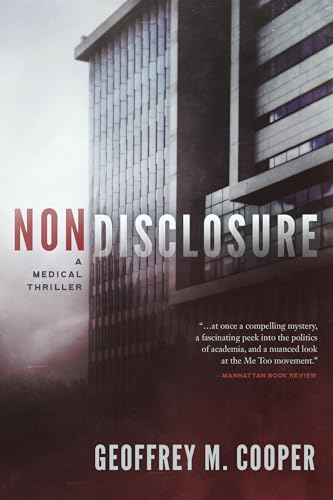

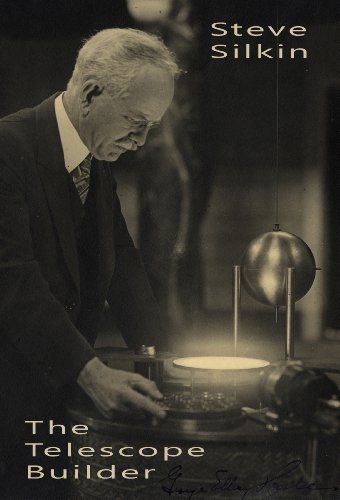
 Loading
Loading



















